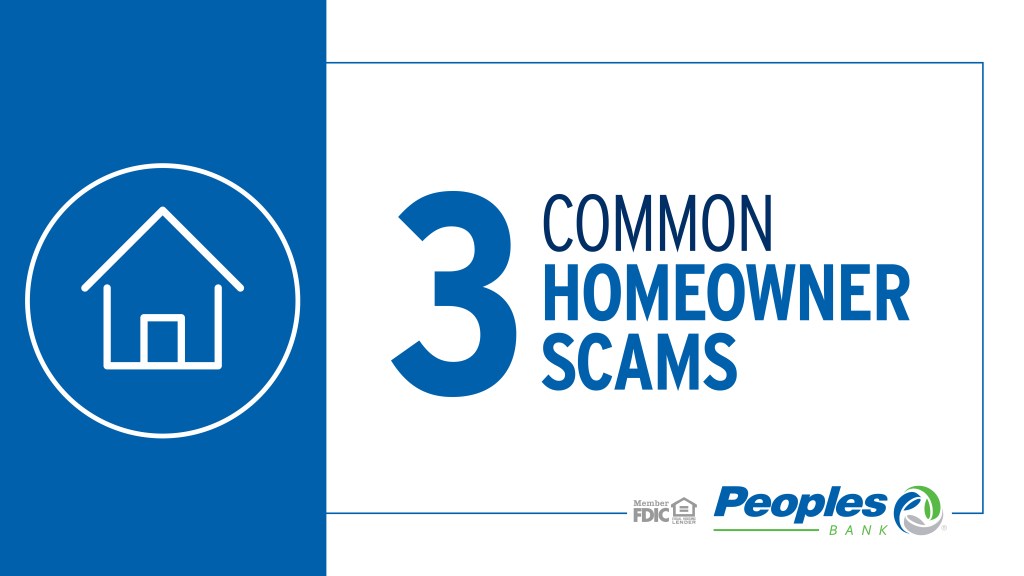Whether you are purchasing your first home or putting your current house on the market, homeownership is an exciting milestone. However, there are scammers searching for unsuspecting borrowers and sellers to steal their personal information. Here are three common scams homeowners could encounter.
- Foreclosure and Refinancing Assistance
Scammers can portray themselves as mortgage relief providers, using scare tactics and too-good-to-be-true offers to get you to pay for their services. In this scam, the provider could use deceptive and unfair lending tactics that leave you with higher loan payments, longer loan terms and more debt. More importantly, they could use the refinancing process to trick you into giving them personal and financial information.
- Fake Real Estate Listings and Buyers
Online real estate listings have become popular, and while they allow sellers to reach a larger audience, scammers can post false listings or pose as interested buyers. They steal photos and descriptions to advertise homes at attractive prices, using deceptive tactics to bypass fraud detectors. Once they receive contact from an interested buyer, they may request personal information or an upfront payment, such as a wire transfer.
On the flip side, a scammer may send a message to a seller, eager to submit a large down payment. They could make a cash offer and promise to deposit money into your account, only to run a cashier’s check or wire fraud scam.
- Lien on Property
Another tactic scammers may try is acting as an attorney, contractor or government entity putting a lien on your home to collect an unsettled debt. This scare tactic may reference the IRS to confuse the victim into thinking they represent a real organization. The scammer may also ask a series of personal identifier questions to get you to release your Social Security Number along with financial records.
Protect Yourself
Stay vigilant and practice these tactics to keep yourself safe.
- Be cautious of unsolicited calls, emails, letters and texts from unknown entities, especially those with too-good-to-be-true offers, the pressure to act and requiring upfront payment.
- Never reveal personal or financial information over the phone or online without first researching the company to ensure you’re communicating with a trusted source. Do not interact directly via social media.
- Also read online business reviews at the Better Business Bureau and look for any customer complaints that might indicate fraudulent practices.
- Verify lender credentials at nmlsconsumeraccess.org.
- Consult an expert: if you wish to explore refinancing or debt relief programs, contact your official lender or financial institution directly. If someone says they put a lien on your home, contact your county clerk and ask if there is an official record of the lien.
- If you believe you’ve been a victim of a scam, immediately stop communication with the suspected scammer, document any prior communications, contact your financial institution, report the scam to your local law enforcement and file a complaint with the Federal Trade Commission.
As a reminder, Peoples Bank will never call, text or email asking for your security code, banking credentials or debit/credit card number. If you’re ever in doubt, contact your local branch or our Customer Care Center at 800.374.6123.


